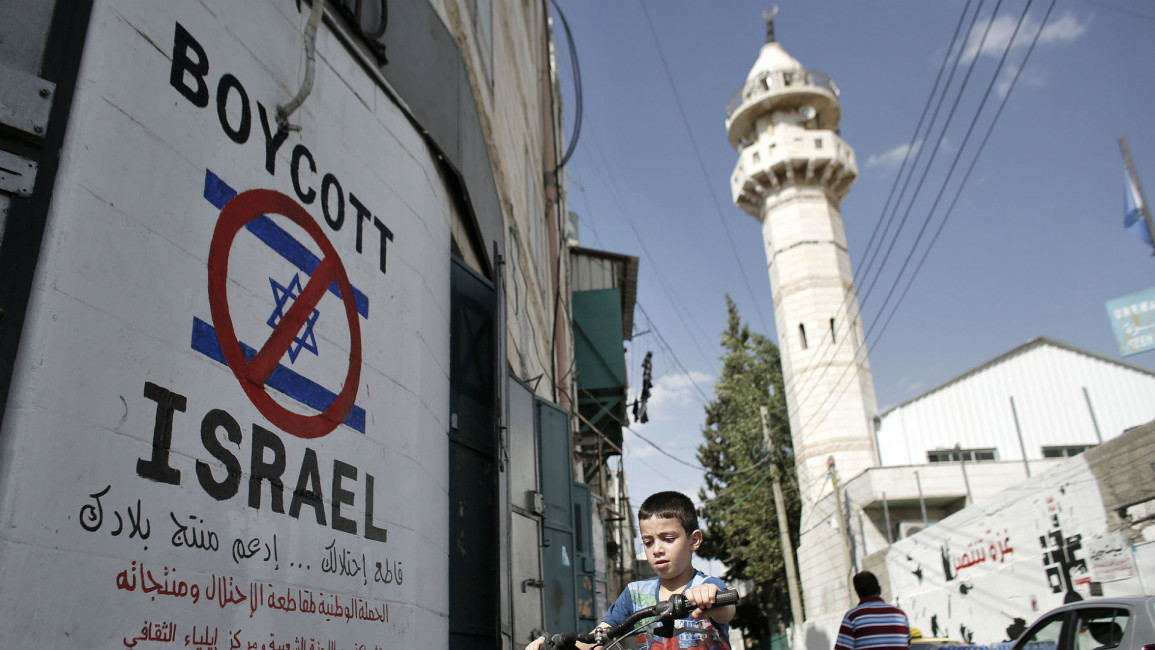Palestinian Authority cancels Israel Gas deal after outcry
The Palestinian Authority (PA) will not ratify a preliminary agreement to import natural gas supplies from Israel for 20 years signed more than a year ago, sources told Al-Araby Al-Jadeed.
The value of the deal is estimated to be 1.2 billion US dollars.
Palestinian Deputy Prime Minister Mohammad Mustafa said Tuesday that ministers have decided to cancel the deal, adding that PA had taken a strategic decision to focus its efforts on developing gas fields off the coast of Gaza.
Omar Kittaneh, Head of the Palestinian Energy Authority was keen to distance the PA from the deal, saying that the PA was not part of the agreement.
The Palestine Power Generation Company, which signed the deal with Delek-Noble, an Israeli American private company, confirmed that it had revoked the agreement and will seek to get Palestinian natural gas instead.
Speaking on a condition of anonymity, a well informed source close to the Palestinian Power Generation company told Al-Araby Al-Jadeed they suspended the deal last summer after a disagreement with the Israeli government on certain aspects of the deal.
The source added that the Palestinian company did not announce the suspension of the deal at the time, hoping that it could use it as a bargaining chip to secure further commercial concessions.
Global Boycott Movement
The decision to cancel the hugely controversial gas deal comes after intense pressure and a vociferous campaign by Palestinians and by the global campaign to boycott Israel.
Activists from Boycott, Divestment and Sanctions (BDS), members of the Palestine Liberation Organization as well as other campaigners have mounted a sustained and hard hitting campaign to kill this deal.
On Tueday, they held a press conference in Ramallah during which they again called for the deal to be revoked.
Qais Abdulkarim, Deputy Secretary General of the Democratic Front for Liberation of Palestine (DFLP) told Al-Araby Al Jadeed that the “the main concern was that the agreement with an Israeli counterpart will deepen dependency on Israeli economy for another 20 years, instead of working to end this dependency”.
He said that it was not likely that agreement would go through, particularly in the current climate and with the Israeli government withholds Palestinian tax revenues as a punishment after Palestine applied to join the International Criminal Court, and the UN Security Council.
Abdulkarim added that it was “absurd to go through such a deal while the Israeli government withholds PA money.”
The total amount of Palestinian tax revenues withheld by Israel is almost $315 million dollars.
The Palestinian Campaign for Boycott, Divestments and Sanctions against Israel (BDS) said any deal was not acceptable politically or economically, nor was it acceptable for Palestinian private sector key investors to make occupation profitable.
The agreement, signed on Jan 5th 2014 between Palestinian Power Generation Company and the American Israeli Delek-Noble, to provide the Palestinian company with $1.2 billion worth of Natural gas from the Leviathan fields just west the coast of Haifa, over the course of 20 years.
The Palestine Power Generation Company is a private company established by semi-governmental Palestine Investment Fund, PADICO Holding and other investors to build a $300 million worth power plant in Jenin, north of the West Bank to provide almost one third of the West Bank’s electricity, for the Palestinian Energy Authority.
“This is a strategic commodity, the government cannot be a by-stander with this agreement” said Samir Abdallah, former PA Planning Minister.
Abdallah, who was member of the Paris Protocol negotiations team which set the current terms of the economic arrangements between the PA and the Israeli government in 1994, said that the Protocol allows Palestinians to buy gas from other neighbouring countries and does not obliged to buy it from Israel.
He criticized the failed deal for ignoring the banning Palestinians from drilling for their own natural gas off the shores of Gaza.
Israel prevented a British Gas – PA power project from operating or drilling off the shores of Gaza for years.
Israel also took over large gas fields in the heart of the West Bank, near Ramallah, by military order.
Zaid Shuaibi, BDS Campaign Regional Outreach Coordinator, said it does not make sense to do business as usual without ending the occupation.
Bassam Salhi, Secretary General of the Palestinian People’s Party (PPP) said that the Palestinians “cannot ask other states or governments to boycott Israel while we tie ourselves to it for 20 coming years.”
Shuaibi said there is also coordination between campaigners in Palestine and those in Jordan who are pushing for a similar Jordan Israeli deal to be scuppered.
Jordan had also signed with Israel an agreement in principle to buy natural gas through Israel, a move that is opposed by Jordanian boycott activists, who hope that cancelling the deal will send a strong signal to other states in the region to back off such deals with Israel.
It was not clear what are the terms of such a termination.
According to Samir Abdallah, the business end of the deal is highly likely to be linked to political decisions in Israel, therefore there is an anticipation that Israel will react by imposing obstacles in the way of any alternative import deal.
Zaid Shuaibi of the BDS Campaign expected that the pull back of the Palestinian government could lead to the fall of the Jordanian – Israeli gas deal, and any other potential deals with Israel.


![President Pezeshkian has denounced Israel's attacks on Lebanon [Getty]](/sites/default/files/styles/image_684x385/public/2173482924.jpeg?h=a5f2f23a&itok=q3evVtko)



 Follow the Middle East's top stories in English at The New Arab on Google News
Follow the Middle East's top stories in English at The New Arab on Google News


